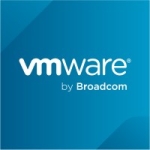What is our primary use case?
We're building an application and host on Amazon. We are a startup company, so it's in a very early development stage. We're trying to build a particular application for multiple customers. The idea is if you have a VPC for each customer you can segregate each client with their own isolated environment. That's what we're building. We're going to build one application that can be personalized for each client.
How has it helped my organization?
The fact that we as a startup don't have to invest in expensive hardware and a place to house it is very helpful for our small business. It saves us money in the long run in overhead costs and allows us to stay streamlined. There's no heavy investment on the outset and we're really just renting the exact amount of what we need.
What is most valuable?
AWS is a cloud platform. There are hundreds of tools within it. The cloud handles the updates so we never have to worry about looking for the latest version of the solution.
The solution offers a low footprint. We don't have to come up with a data center ourselves. We basically don't have to own any hardware. We just rent a slice of their platform and we have everything we need.
What needs improvement?
The biggest area for improvement is the fact that there are a vast amount of tools. The best way to describe it is this: you have lots of Lego pieces, hundreds of Lego pieces, but they all do something specific. However, it's very difficult to understand the purpose of these tools, how are they fit into our environment, our design ideas, etc. To assemble all of these tools, to make them fit into the architectural vision of the company, is very difficult. This is especially true for a startup that doesn't have unlimited resources for research and study. We cannot comprehend the vast amount of information that Amazon produces.
The pricing is very confusing.
They should really consolidate and make things simpler rather than offer you hundreds of random options. The way everything is arranged really forces users to figure out everything on their own and then, on top of that, to calculate the total costs. There's an infinite number of combinations even just with cost calculations. It's too much.
For how long have I used the solution?
While the company has been around for three years and has used the solution since its inception, I have only worked here for three months and have a total of three months of experience with the solution.
What do I think about the stability of the solution?
The solution is very stable. AWS is quite reliable and we haven't had issues. There haven't been bugs, glitches, or crashes. It works well and as expected.
What do I think about the scalability of the solution?
AWS is extremely scalable. It's designed to be. The sky really is the limit. Users and organizations can expand as much as they like.
We're a small company right now. We're still in the startup phase. We have about 20 people at the moment. We have a dozen developers directly on it now. That said, you probably only need two people for development and maintenance.
We do plan to expand in the future.
How are customer service and technical support?
Personally I haven't used their support yet. I cannot give more info. I've only been at the company for three months and haven't faced any issues that required me to reach out to technical support.
Which solution did I use previously and why did I switch?
We are just a startup so the company is young. The founders made the choice to use the database and they've used it since day one.
How was the initial setup?
The initial setup is both really straightforward and complex. At first, it's simple. However, as you get deeper into the solution and work in all kinds of variations or all kinds of scenarios, things get really complex. The more you have to consider the more complicated it can get. The complexities multiple quickly.
We use Terraform to provision the best infrastructure, which makes our platform really easy to manage in terms of our implementation strategy.
What about the implementation team?
We handled the implementation ourselves. We didn't need to hire on an integrator or consultant to assist us.
What's my experience with pricing, setup cost, and licensing?
The calculating of costs is quite difficult. There are all kinds of variables to consider and it's all very unclear.
It's my understanding that our company is charged a few hundred dollars on a monthly basis.
Which other solutions did I evaluate?
My understanding is that this product was used from day one. I don't think other options were considered. However, I was not at the company when AWS was implemented.
What other advice do I have?
We're a startup company. It's a very small company with only 20 people. Everything we use is cloud-based. We're simply a customer of AWS. We don't have a special relationship with the company.
I'd warn others considering using the solution that the environment is vast and complex, and a company will need a lot of tools at their disposal for research and to understand the product. If there are people within the organization who already have experience with the architecture or with similar solutions within the AWS environment, that will help make implementation successful. It's important to bring people who have previous AWS architecture experience into the organization.
I'd rate the solution seven out of ten. It does do everything we need it to do, however, as a small company, figuring it out is a big effort. Making it more streamlined or straightforward in the future would probably give it higher marks.
Which deployment model are you using for this solution?
Public Cloud
If public cloud, private cloud, or hybrid cloud, which cloud provider do you use?
Amazon Web Services (AWS)
Disclosure: My company does not have a business relationship with this vendor other than being a customer.


















